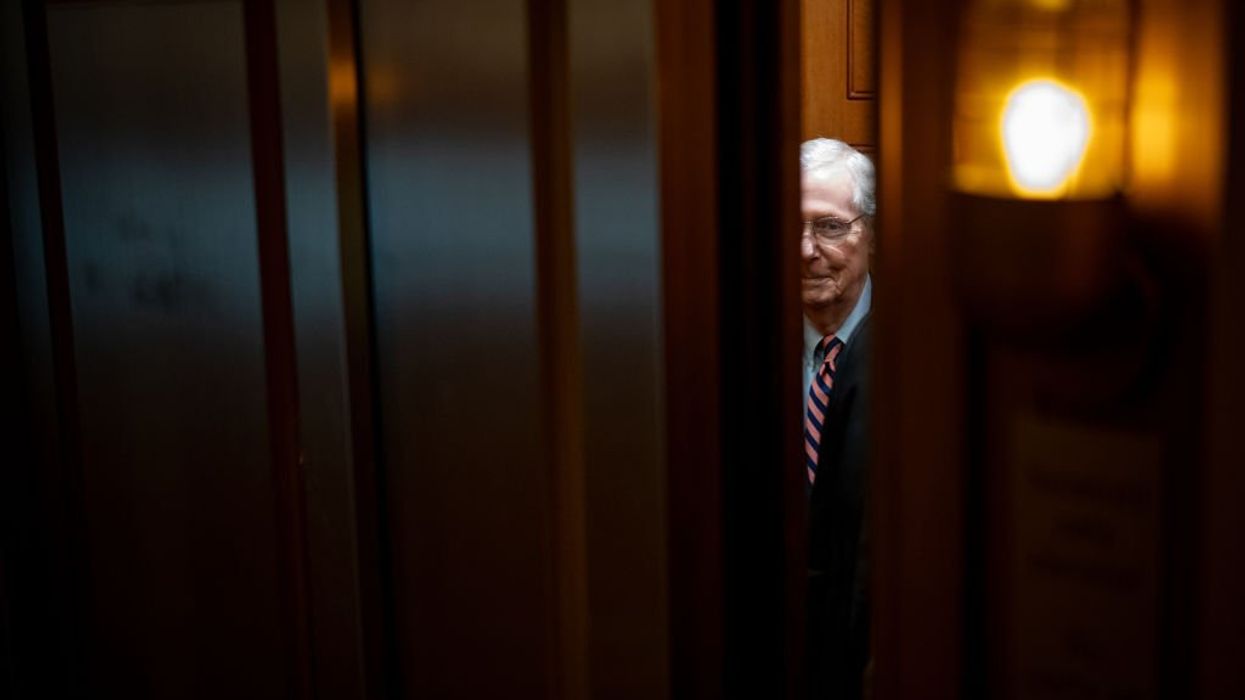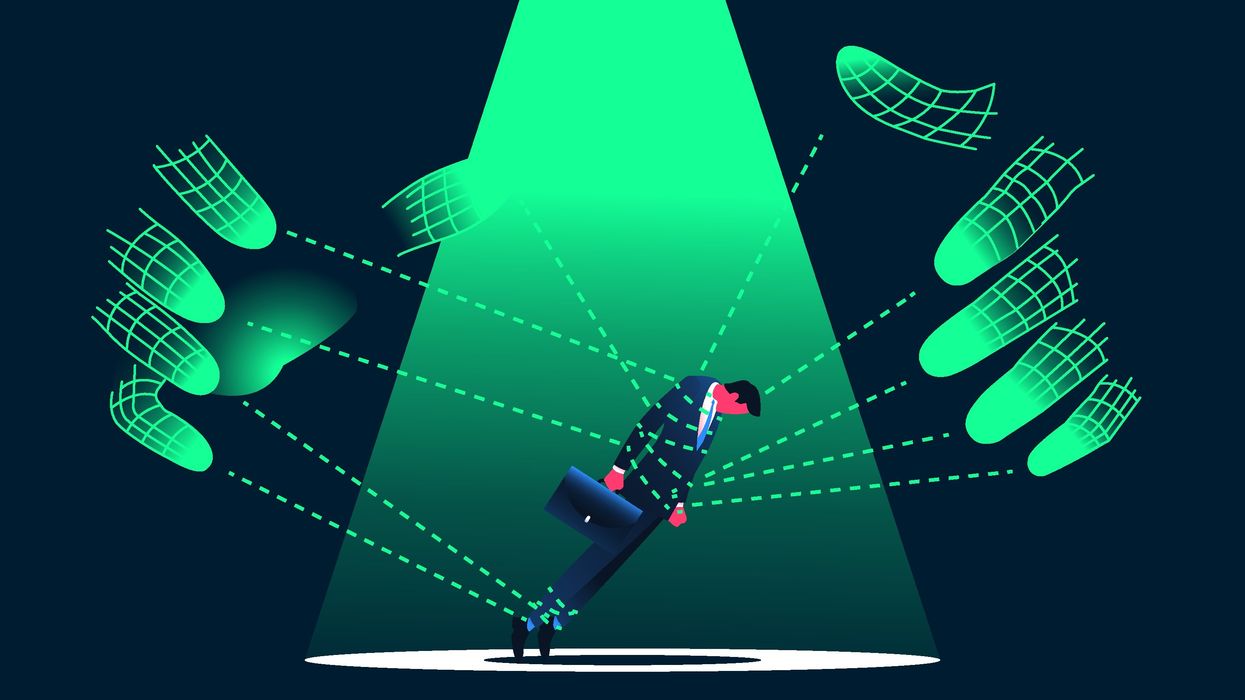
© 2024 Blaze Media LLC. All rights reserved.
"Occupy came along at a time which was ripe, and the strategy I thought was brilliant."
Noam Chomsky has distinguished himself as one of the American left's most prominent "philosophers" and "cognitive scientists." The MIT professor is known for filtering his knowledge and opinions into countless books, media interviews and the like. Considering his past far-left commentary, it's no wonder that he has become a darling of the Occupy Wall Street movement. And over the past month, the prominent academic has been fast at work helping to advance the Occupy agenda.
Last week, the famed leftist sat down with Laura Flanders of GRITtv to discuss the movement as well as the current sociopolitical scenario in America and abroad. Additionally, he shared his views on the Republican Party, which he sees as a movement appealing to the very wealthy, "nativists" and the ultra-religious.

"The Republican Party has, for some years, pretty much abandoned any pretense of being a traditional political party," Chomsky said. "It's kind of lockstep obedience to the very rich, super rich and the corporate sector."
When it comes to the so-called 99 percent, the professor believes that there are very specific targets that must be gone after if the cohort wants to reach success.
"It’s the concentrations of private power, which have an enormous -- not total control -- but enormous influence over Congress and the White House," he explained. "In fact, that’s increasing sharply with the sharp concentration of private power escalating across the elections, and so on."
Below, watch Chomsky's interview with Flanders:
In addition to doing this sit-down, Chomsky recently released a book entitled, "Occupy." The official description for the text reads, in part:
Since its sudden appearance in September 2011, the Occupy Movement has spread to thousands of towns and cities across the world. For some it’s the economy. For others, it’s something deeper. Through relentless organizing and ongoing civil disobedience, the movement now occupies the global conscience as its influence spreads from street assemblies and protests to op-ed pages and the corridors of power. From the movement’s onset, Noam Chomsky was there, offering his voice, his support, and his detailed analysis of what’s been going down and what might be done. [...]Following the old course, says Chomsky, isn’t going to work. He argues that if we continue to follow the model of growth set for us by the 1%, we'll be like lemmings walking off a cliff. The only alternative is to get involved and fight for a better future. If not now, when? If not us, who?
Read this book if you want to do something to protect freedom, democracy, and the economy from further corporate influence and control.
Clearly, Chomsky is helping in Occupy's re-organization, as he also seems to be using the book as an opportunity to provide a context to what has led to -- and sustained -- the seemingly never-ending protests. At the least, it's an opportunity for him to keep his message prevalent and his voice involved in the discussion. At most, it's a chance for him to take part in and promote a movement that espouses the views he's been spouting for years.

On April 22, leading up to the release of "Occupy", the 83-year-old academic appeared on AlterNet radio (listen here), where he discussed many of these same themes. Chomsky called America "the richest, most powerful country in world history" during the interview and lamented the current situation that the 99 percent face:
"This is the richest, most powerful country in world history. It has extraordinary advantages. Comparing what ought to be, given those circumstances, with what is for the large majority of the population -- the 99 percent in the imagery of the Occupy movement -- that’s a huge gap.For example, we don’t have the kind of healthcare that comparable societies have. We don’t have the kind of infrastructure. The last 30 years there’s been -- even apart from the last recession -- a relative stagnation of the large majority of the population. [...]
It’s a class-based failure that’s by design. That’s the crucial fact. There have been and still are other options available. Things don’t have to happen like this. I think there’s just been a steady buildup of concern, anger and frustration. You can see it in polls. Hatred of institutions and distrust is all over the country, and it’s been rising for a long time. The Occupy movement managed to capture the mood and crystallize it. That’s the way popular movements take off."

Some of his words that followed this portion of the discussion, though, lead to some interesting questions. Chomsky covers the notion that he initially didn't believe Occupy would work and that he would have never "advised it." He also said the strategy behind the movement was "brilliant."
The way in which he discussed it, to a degree, made the movement sound planned and plotted rather than organic (a possibility that The Blaze has explored time and again):
"Occupy came along at a time which was ripe, and the strategy I thought was brilliant. If I had been asked I wouldn’t have advised it. I never thought it was going to work. Fortunately I was wrong. It worked very well. Two major developments took place I think, and if it can be sustained and expanded it’ll be extremely important. One was just changing the discourse, putting things on the public agenda that were simmering in the background but were never articulated in a focused fashion -- like inequality or financial corruption and the shredding of the democratic system, the collapse of a productive economy. These things just became common coin. That’s very important."
All things considered, it seems Chomsky is as fast at work as he has always been. His theories and his support for far-left causes will add even more fuel to the fire that Occupy hopes to continuing stoking.
Want to leave a tip?
We answer to you. Help keep our content free of advertisers and big tech censorship by leaving a tip today.
Want to join the conversation?
Already a subscriber?
Billy Hallowell is a digital TV host and interviewer for Faithwire and CBN News and the co-host of CBN’s "Quick Start Podcast."
Billy Hallowell
Billy Hallowell is a digital TV host and interviewer for Faithwire and CBN News and the co-host of CBN’s "Quick Start Podcast."
more stories
Sign up for the Blaze newsletter
By signing up, you agree to our Privacy Policy and Terms of Use, and agree to receive content that may sometimes include advertisements. You may opt out at any time.
© 2024 Blaze Media LLC. All rights reserved.
Get the stories that matter most delivered directly to your inbox.
By signing up, you agree to our Privacy Policy and Terms of Use, and agree to receive content that may sometimes include advertisements. You may opt out at any time.


